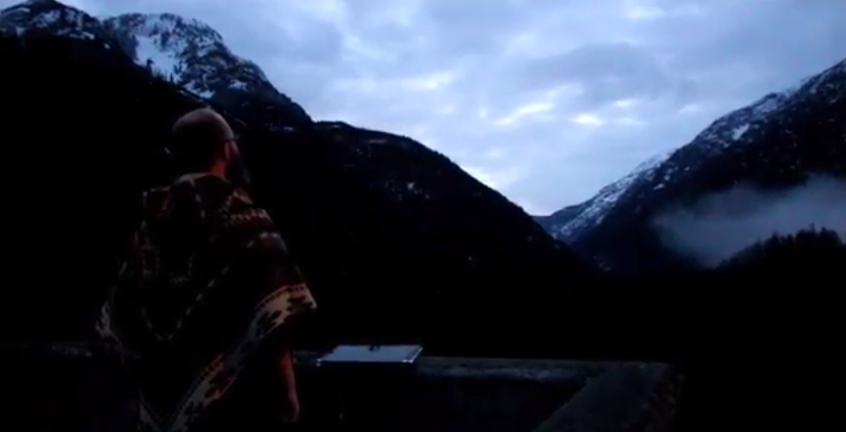Music has always been the lifeblood in my life. From performing in opera scenes to jamming on road trips, the need for music for me is as important as oxygen with every breath. Not only does it change emotions and challenge ideas, it also keeps away the scariest thing that I have ever encountered: silence. While music brings life, silence is the absence of it.
Which becomes a huge problem for pursuing the profession of environmental education. Some 'stereotypes' of Environmental Educators have everyone in the profession needing silence and to be 'unplugged.' In EE you are supposed to enjoy sitting quietly alone, reflecting with only your thoughts. The rapid technocratic world represents loud and chaotic sounds while nature and the outdoors represent peace and quiet.
When I started to call myself an outdoorist this was always something I was uncomfortable with. I would love reaching peaks of mountains or traversing miles through forests but I always hated the silence in them. Yes, there might be birds chirping or some rivers running but overall those places were quiet. Technology allowed me to carry music into the wilderness. I always needed to have a podcast running while on a hike or music while at camp. Therefore, I could never truly be present because I would have one foot in the 'pristine of nature' and one in 'the chaos of technology.' That is, until I found my querencia.
“Querencia is a metaphysical concept in the Spanish language...which means “to desire.” Querencia describes a place where one feels safe, a place from which one’s strength of character is drawn, a place where one feels at home.”
While at the North Cascades Institute for the residency part of the graduate program, I found the outdoor space where I could truly feel safe, with no podcast or music playing. I found where the mountains shout back.
Diablo Dam, located in Washington State, is nestled right in a beautiful mountain valley. The dam, almost 400 feet tall, holds Diablo lake to the east and the Skagit river to the west. This creates two very interesting phenomenons: (if you are a visual learner, you can check out pictures of Hannah and I recording my first echos here.)
- Since you are in the middle of the valley there are often clouds below you and mountains above. This creates a unique situation where you can look down to the sky, and up to the earth.
- If you look to the west, and shout really, really loud, you can hear your echo at least five times! The mountains can call back!
Wilderness, nature, whatever you want to call it, for the first time in my life, was loud enough for me. When I went to my querencia I would leave the music and podcasts back in the car. Hours the mountains and I would play, laugh, and sing together.
Since my graduate program was a non-thesis residency track, I had multiple projects that when added to a portfolio equal the work of a thesis, but allow us to explore different paths. For example, I designed a curriculum using next generations science standards and worked with others to create a non-profit. The final project is called a capstone, which is an hour long presentation about a topic that the worlds needs to hear. Some of my peers described the need for fxminist pedagogy in outdoor education or the need for all education to have social justice in it. I built my topic around the idea "I have to show everyone my querencia."
But why? Why music when there is so much pain in the world? Why music with all this injustice? Music can be a tool to bring people closer to place, and to each other. Music becomes the wind that carries the cries for peace. Music becomes the water that flows into our neighborhoods, connecting us.
Environmental education does a fantastic job of being open to various styles of teaching. But there has been a distinct lack of place-based music used for teaching. During my time in the Cascades I got to work with the Artist Response Team (a Canadian based rock group that teaches students through music). They, and many others, are the foundation of my life-long pursuit to bring more music not only into environmental education, but into everything that I do.
My capstone project looked wildly different than my peers. More of a show, I started off by providing scenes into how music was intertwined into my graduate program. The last scene was me, at my querencia, singing a duet with mountains.
As much as I love technology, there is no amount of recording equipment that can truly capture the power and wonder of that place. But below you will find the hard work of my friends trying to capture that with the best technology available. If you were unable to attend, this makes for a pretty fantastic substitute.
I highly recommend listening to this with headphones in to best hear the echos from the valley. To Nick, Lindsey, Joshua, the NCI staff, C16, C15, and the wider North Cascades biome community, from every fiber of my being, thank you for helping me find my querencia.


